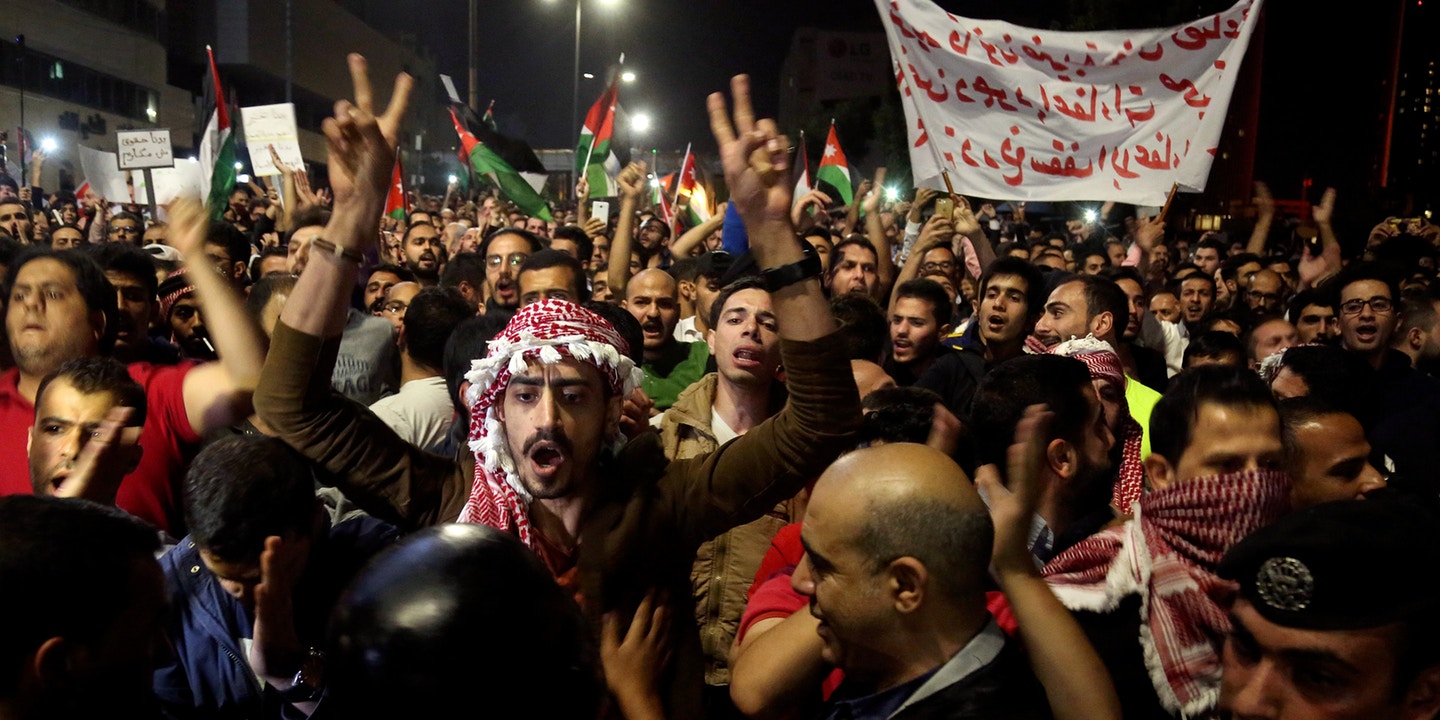Gulf swoops to protect Jordan
June 11, 2018 | Expert Insights

Gulf nations, led by Saudi Arabia, have pledged to provide Jordan with a significant aid package worth $2.5 billion. Thousands of Jordanians have taken to the streets to participate in one of the largest protests the nation has witnessed in its history. Jordan is currently in the midst of an economic crisis.
Background
The relatively stable Hashemite Kingdom of Jordan is precariously located in West Asia neighbouring Israel, Syria, Saudi Arabia, and Iraq. A part of the cradle of civilisation, Jordan’s history dates back to the Palaeolithic Period. Change in climate increased migration and trade during the Bronze Age. Small settlements and pastoral communities were in existence until Umayyad Caliphate provided the distinct Arab culture before Ottoman rule.
The area of Transjordan was granted independence from the British in 1946 as a sovereign constitutional monarchy. It was a founding member of the Arab League. Initial years after Independence saw participation in the wars against Israel parallel to liberalisation of society and economy.
Described as an “Oasis of Stability,” Jordan is strategically located at the crossroads between Asia, Africa, and Europe. Sans a short 26km shoreline in the Gulf of Aqaba, Jordan is a landlocked country. Although Jordan hosts a range of ecosystems, the country has limited natural resources. Nevertheless, owing to a skilled workforce, extensive trading, foreign remittances and tourism, the economy is classified as an emerging market.
Since the 2011 Arab Spring, Jordan had opened its borders for refugees fleeing the Syrian Civil War. Escalation in the conflict with ISIS increased the influx of refugees with many living in inhospitable camps at the borders. This act of goodwill to fellow Arabs has added to the economic stagnation with mounting public debt. The IMF approved credit line has been opened for three years from 2016 as a part of the Extended Fund Facility (EFF).
Analysis
The rising cost of living, economic policies and tax reforms have sparked the biggest protests in years in Jordan. After the Arab Spring protests, growth slowed to just 2%. Substantial increase of the population, coupled with slowed economic growth and rising public debt led to a worsening of poverty and unemployment in the country.
Jordanians in particular believe that the IMF agreement would hurt their livelihoods. However, Jordanian officials have been quoted as noting that the government cannot afford to withdraw from the agreement. Officials are hoping to extend the duration.
“Jordan cannot afford to abandon the program but will ask to extend its duration for one or two years. Provided you show commitment you are delivering, I think this is doable,” an official involved with the IMF program said. “Pushing countries to the extreme regardless of the political environment was not the right thing. The IMF now has to take into consideration Jordan’s capacity in what it can do,” a second senior economic official who requested anonymity said.
In the meantime, Gulf nations are rushing to save Jordan’s economy and help it curtail the protests. Kuwait, Saudi Arabia and the United Arab Emirates have already pledged $2.5bn in aid. This money will go towards a deposit in Jordan's Central Bank. According to officials, this will cover World Bank loan guarantees for the kingdom, direct budget support in the form cash deposits. These funds will also be spent to bankroll development projects in Jordan.
Jordan's King Abdullah II, Saudi King Salman, Kuwait's ruling Emir, Sheikh Sabah Al Ahmad Al Sabah, and Dubai's ruler Sheikh Mohammed bin Rashid Al Maktoum, the UAE's vice president and prime minister were all part of a meeting to finalize the relief package.
Assessment
Our assessment is that it is clear that the nations in the Gulf region are rushing to protect Jordan in order to prevent another Arab Spring protest. Saudi Arabia and other countries in the Middle East are extremely sensitive to the demands of reforms that are made in Jordan. There are fears that these demands would find a willing audience in their own nations. Therefore, by providing Jordan with a substantial aid package in hopes of quelling the protests, Saudi Arabia is acting on its own interests.








Comments